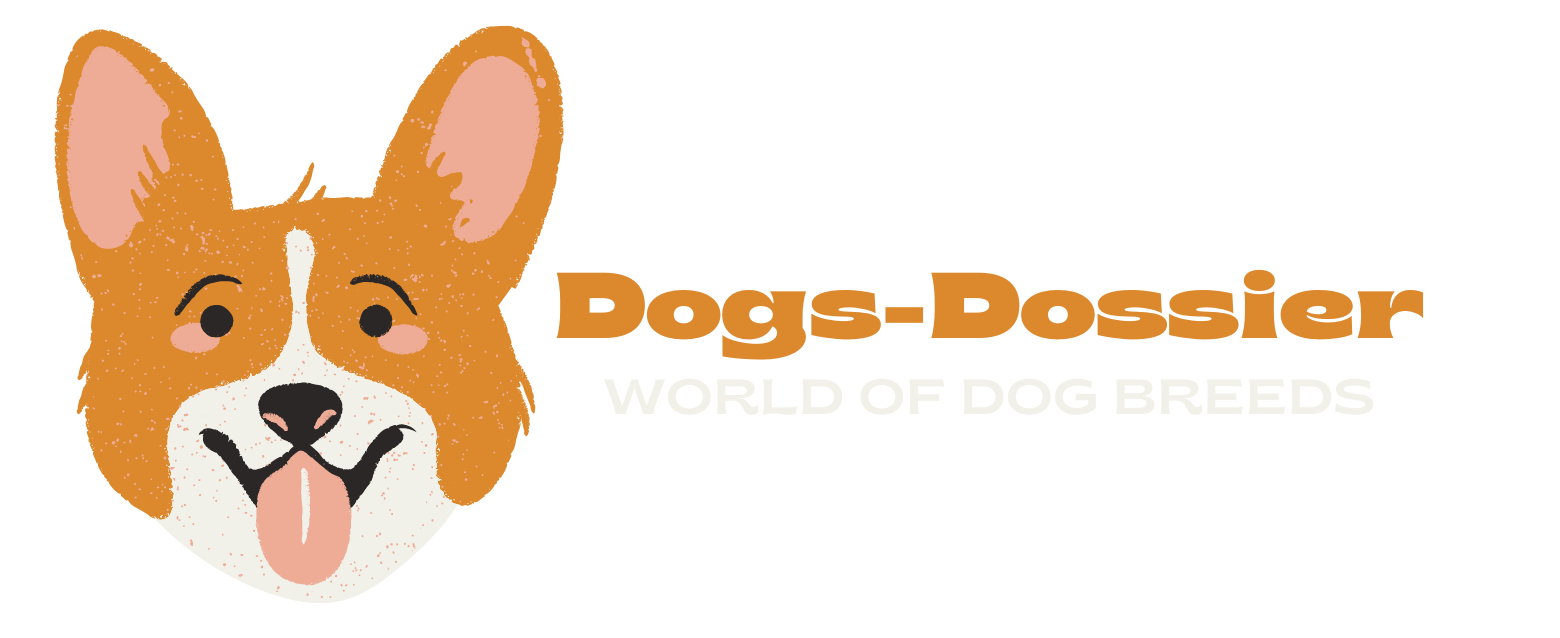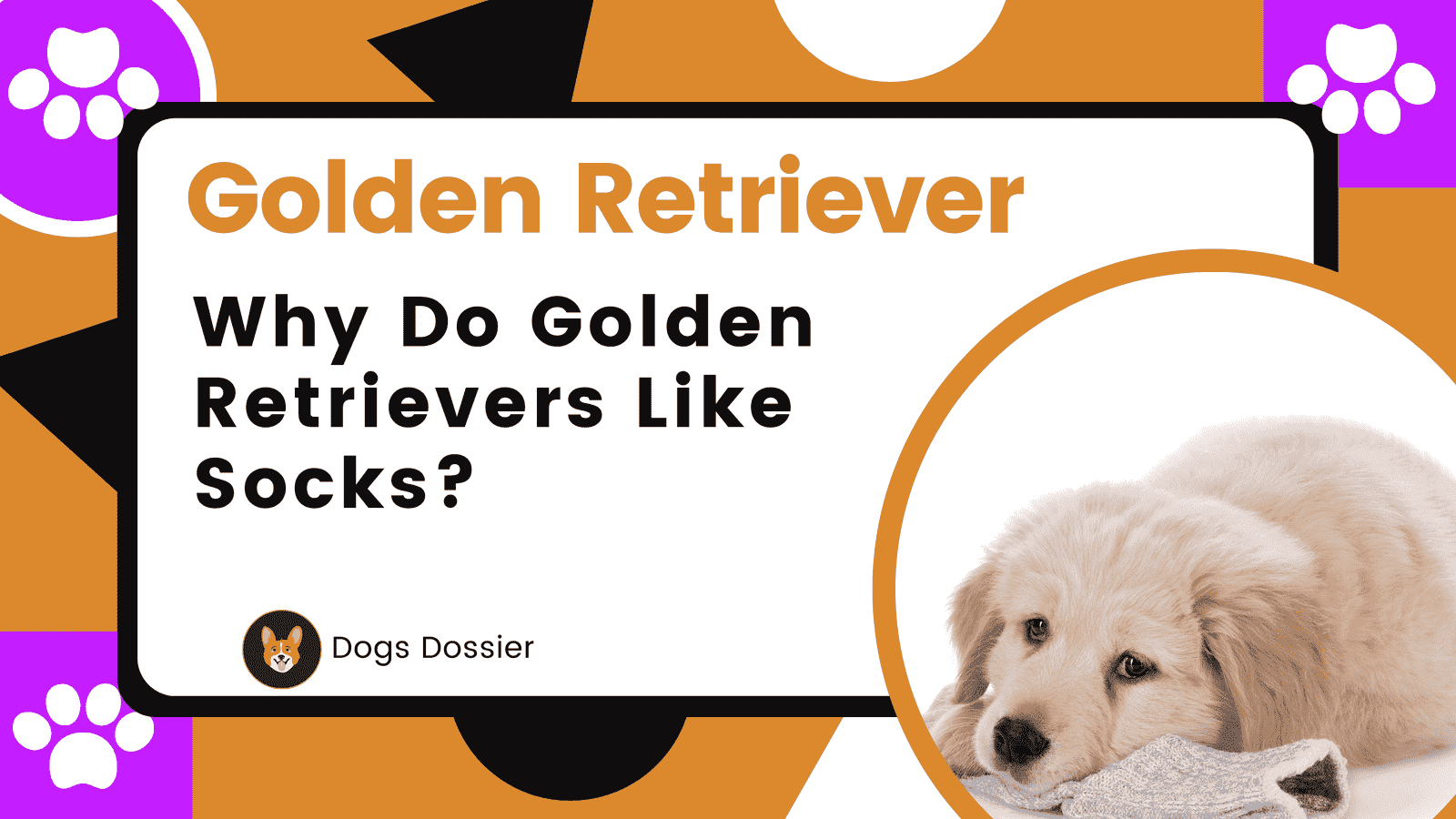Why Do Golden Retrievers Like Socks?
Golden retrievers are beloved for their friendly demeanor, intelligence, and loyalty. However, one quirky behavior that many owners notice is their penchant for socks.
From playfully carrying them around to outright chewing on them, golden retrievers seem to have a fascination with this everyday clothing item.
In this article we will discuss, why exactly do these furry friends harbor such an interest in socks?
Reasons why Golden Retrievers Like Socks?
The main reason why golden retrievers like socks is their strong association with their owners’ scent.
Dogs are drawn to items that carry familiar smells, and socks, being worn close to the skin, absorb and retain this scent effectively.
Additionally, the soft texture and taste of socks may appeal to their natural chewing instincts, providing a source of comfort and stimulation.
Furthermore, engaging with socks often elicits reactions from their owners, satisfying their desire for attention and play. Overall, the combination of scent association, tactile stimulation, and social interaction makes socks irresistible to golden retrievers.

Understanding Golden Retrievers
Golden retrievers are a breed of dog known for their friendly and sociable nature.
They are beloved for their gentle temperament and are often described as affectionate and loyal companions.
These dogs thrive on human interaction and are known for their eagerness to please their owners.
Their intelligence and adaptability make them well-suited for various roles, including therapy and assistance work.
In essence, understanding golden retrievers involves recognizing their friendly disposition, their need for human companionship, and their capacity for learning and adapting to different environments.
Curious Canines: The Sock Obsession
Golden retrievers are often observed to have a peculiar fascination with socks, earning them the nickname of “sock thieves” among their owners.
This behavior can manifest in various ways, such as retrieving socks from laundry baskets, rummaging through closets to find them, or even stealing them directly off people’s feet.
It’s not uncommon for golden retrievers to carry socks around the house, treating them as prized possessions or engaging in playful antics with them.
The origins of this sock obsession can be traced back to a combination of factors inherent to the breed’s nature.
Golden retrievers are naturally curious animals, always eager to explore their surroundings and interact with objects they encounter.
Socks, with their distinct textures and scents, pique their interest and stimulate their senses, making them irresistible targets for investigation and play.
Sensory Exploration: The Role of Smell
Dogs, including golden retrievers, experience the world primarily through their sense of smell, which is far more acute and sensitive than that of humans.
This heightened olfactory ability allows them to detect a wide range of scents and perceive the world in a way that is fundamentally different from humans.
For golden retrievers, their sense of smell plays a crucial role in how they navigate and interact with their environment, influencing their behavior and communication.
Socks, being items that come into close contact with their owners’ skin, carry a unique and recognizable scent.
From the perspective of a golden retriever, socks are not just inanimate objects but carriers of familiar and comforting smells associated with their beloved human companions.
This association with their owners’ scent can evoke feelings of security, comfort, and familiarity for golden retrievers, akin to how humans might find solace in the scent of a loved one’s clothing or belongings.
In the context of sensory exploration, socks provide golden retrievers with an opportunity to engage in olfactory investigation and stimulus.
Dogs use their sense of smell to gather information about their environment, identify objects, and communicate with other animals.
When a golden retriever encounters a sock, they instinctively sniff and investigate it, analyzing the various scents present and deciphering the messages encoded within them.
This process of sensory exploration not only satisfies their natural curiosity but also enriches their understanding of the world around them.

Chewing Behavior in Dogs
Chewing is a natural behavior for dogs and serves various purposes throughout their lives. As puppies, chewing helps soothe teething discomfort and facilitates the development of strong jaws.
In adulthood, dogs may continue to chew as a means of exploring their surroundings, alleviating boredom, and relieving stress or anxiety.
Golden retrievers, like many other breeds, go through stages where chewing is particularly prominent.
Golden retrievers, like many other dogs, seek comfort and security in their surroundings, particularly in the presence of their human companions.
These affectionate animals form strong bonds with their owners and often exhibit behaviors that reflect their desire for closeness and reassurance.
Socks, being items that carry the scent of their owners, can provide a source of comfort and security for golden retrievers, especially when their owners are absent.
The soft texture and familiar smell of socks evoke feelings of warmth and familiarity for golden retrievers, akin to cuddling with a cherished toy or blanket.
When left alone or separated from their owners, these dogs may seek out socks as a way to soothe themselves and alleviate feelings of anxiety or loneliness.
The scent of their owners on socks serves as a tangible reminder of their presence, offering a sense of continuity and connection even in their absence.
Attention Seeking Behavior
Golden retrievers are known for their sociable and playful nature, often seeking attention and interaction with their owners.
Chewing on socks may be a way for them to engage in interactive play or seek attention from their humans.
The act of stealing socks and prompting a chase can be a form of bonding and entertainment for these affectionate pets, reinforcing their desire for companionship and engagement.
Potential Risks and Concerns
While the sight of a golden retriever with a sock may seem amusing, owners need to recognize the potential risks and concerns associated with this behavior.
Ingesting socks can pose serious health hazards for dogs, including golden retrievers, and may lead to digestive blockages or other gastrointestinal issues.
Dogs have a natural inclination to chew on objects as part of their exploratory and teething behaviors.
However, ingesting foreign objects like socks can result in a blockage in the gastrointestinal tract, which can lead to severe discomfort, pain, and even life-threatening complications if left untreated.
The fabric of socks is not easily digestible and can become lodged in the stomach or intestines, obstructing the passage of food and causing a variety of symptoms such as vomiting, diarrhea, abdominal pain, lethargy, and loss of appetite.
Additionally, socks may pose a choking hazard if swallowed whole or in large pieces, particularly for smaller dogs or those with a tendency to gulp down their food without chewing properly.
Training Strategies
When it comes to addressing sock-chewing behavior in golden retrievers, effective training strategies play a crucial role in modifying their behavior and encouraging more desirable alternatives.
Redirecting the behavior towards appropriate chew toys and employing positive reinforcement techniques are key components of successful training interventions.
One effective training strategy is to provide golden retrievers with a variety of durable chew toys that are specifically designed to satisfy their chewing instincts.
By offering a selection of toys with different textures, shapes, and flavors, owners can provide their dogs with suitable alternatives to socks and encourage them to engage in more appropriate chewing behaviors.
Positive reinforcement techniques are another valuable tool in training golden retrievers to refrain from chewing on socks.
When a golden retriever chooses to chew on a toy instead of a sock, owners should immediately praise and reward them with treats, verbal praise, or affection.
Consulting a Professional
If sock-chewing behavior persists or becomes problematic, consulting a veterinarian or professional dog behaviorist is advisable.
They can provide personalized guidance and support to address underlying issues contributing to the behavior.

Golden Retriever Care Tips
- Regular Exercise: Golden retrievers are active and energetic dogs that require daily exercise to stay healthy and happy. Aim for at least 30-60 minutes of moderate to vigorous physical activity each day, such as brisk walks, jogging, or play sessions in a fenced yard or park.
- Mental Stimulation: In addition to physical exercise, golden retrievers benefit from mental stimulation to keep their minds engaged and prevent boredom. Provide puzzle toys, interactive games, and training sessions to challenge their intelligence and keep them mentally sharp.
- Proper Nutrition: Feed your golden retriever a balanced and nutritious diet tailored to their age, size, and activity level. Choose high-quality dog food formulated for large breeds and avoid overfeeding to prevent obesity, which can lead to health problems. Provide fresh water at all times and monitor their weight regularly.
- Regular Grooming: Golden retrievers have a dense double coat that requires regular grooming to keep it clean and healthy. Brush their coat at least 2-3 times a week to remove loose hair, prevent mats and tangles, and distribute natural oils. Bathe them as needed, using a gentle dog shampoo recommended by your veterinarian.
- Dental Care: Dental hygiene is important for golden retrievers to prevent dental issues such as tartar buildup, gum disease, and tooth decay. Brush your dog’s teeth regularly with a dog-specific toothbrush and toothpaste, offer dental chews or toys to help clean their teeth, and schedule regular dental check-ups with your veterinarian.
- Regular Veterinary Care: Schedule annual wellness exams with your veterinarian to ensure your golden retriever is healthy and up-to-date on vaccinations. Be proactive in addressing any health concerns or changes in behavior promptly to prevent potential complications and ensure early detection of health issues.
FAQs: Golden Retrievers
Why do golden retrievers have a fascination with socks?
Golden retrievers are drawn to socks due to their association with their owners’ scent and their instinct to chew.
Is it harmful if my golden retriever ingests socks?
Yes, ingesting socks can pose a serious health risk to dogs, potentially leading to digestive blockages or other gastrointestinal issues.
How can I discourage my golden retriever from chewing socks?
Redirecting their behavior towards appropriate chew toys and using positive reinforcement techniques can help discourage sock-chewing habits.
Are there any specific toys or alternatives I can provide to prevent sock-chewing behavior?
Offering durable chew toys or puzzle feeders can redirect their chewing instincts towards more suitable items and prevent them from targeting socks.
Should I be concerned if my golden retriever shows excessive interest in socks?
Yes, excessive interest in socks should be addressed to prevent potential health risks and ensure the well-being of your golden retriever.
Conclusion
While the fascination with socks may seem puzzling at first, understanding the underlying reasons behind this behavior can help owners better manage and prevent it.
By providing appropriate outlets for chewing, engaging in positive training techniques, and seeking professional advice when needed, owners can ensure their golden retrievers lead happy and healthy lives.





